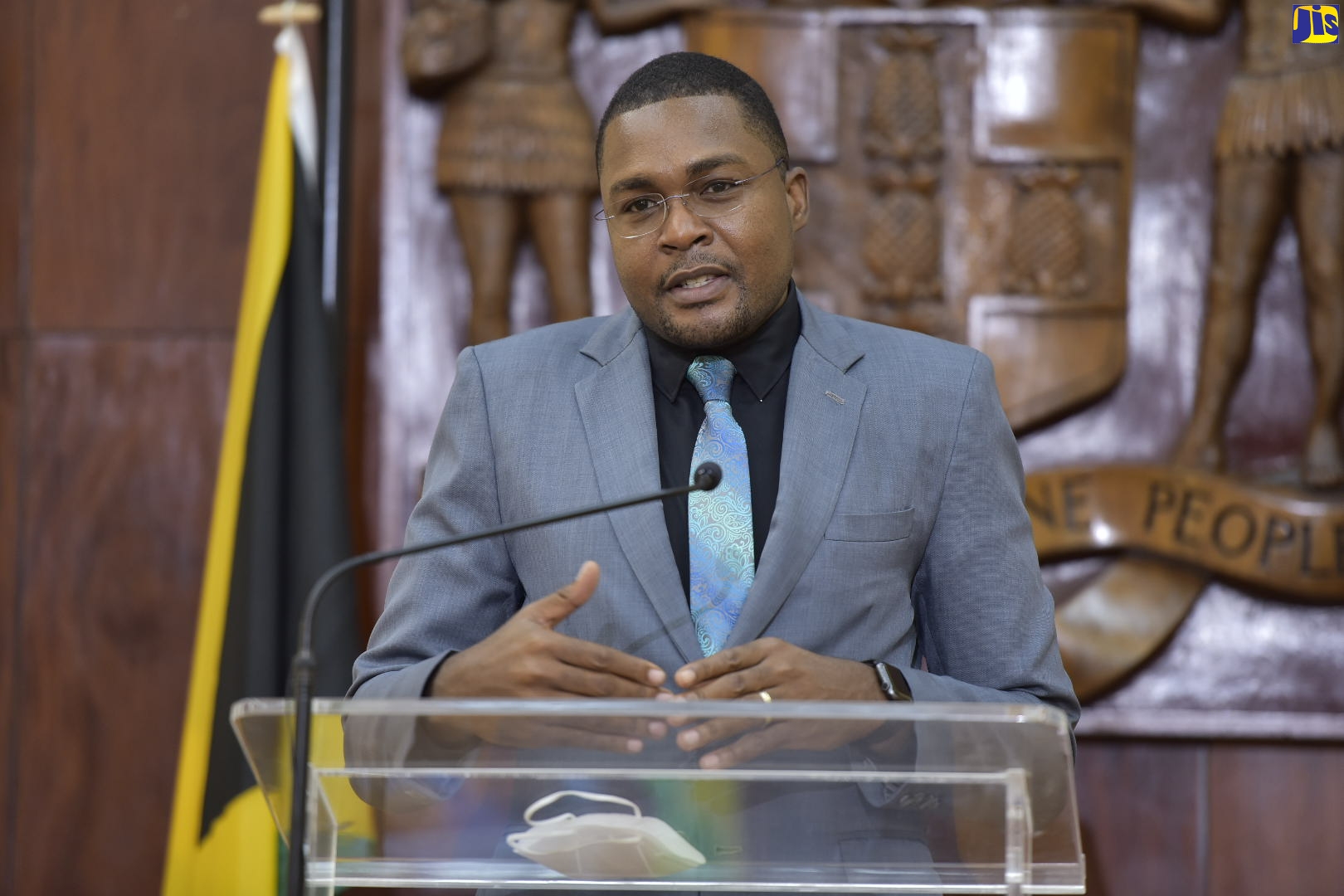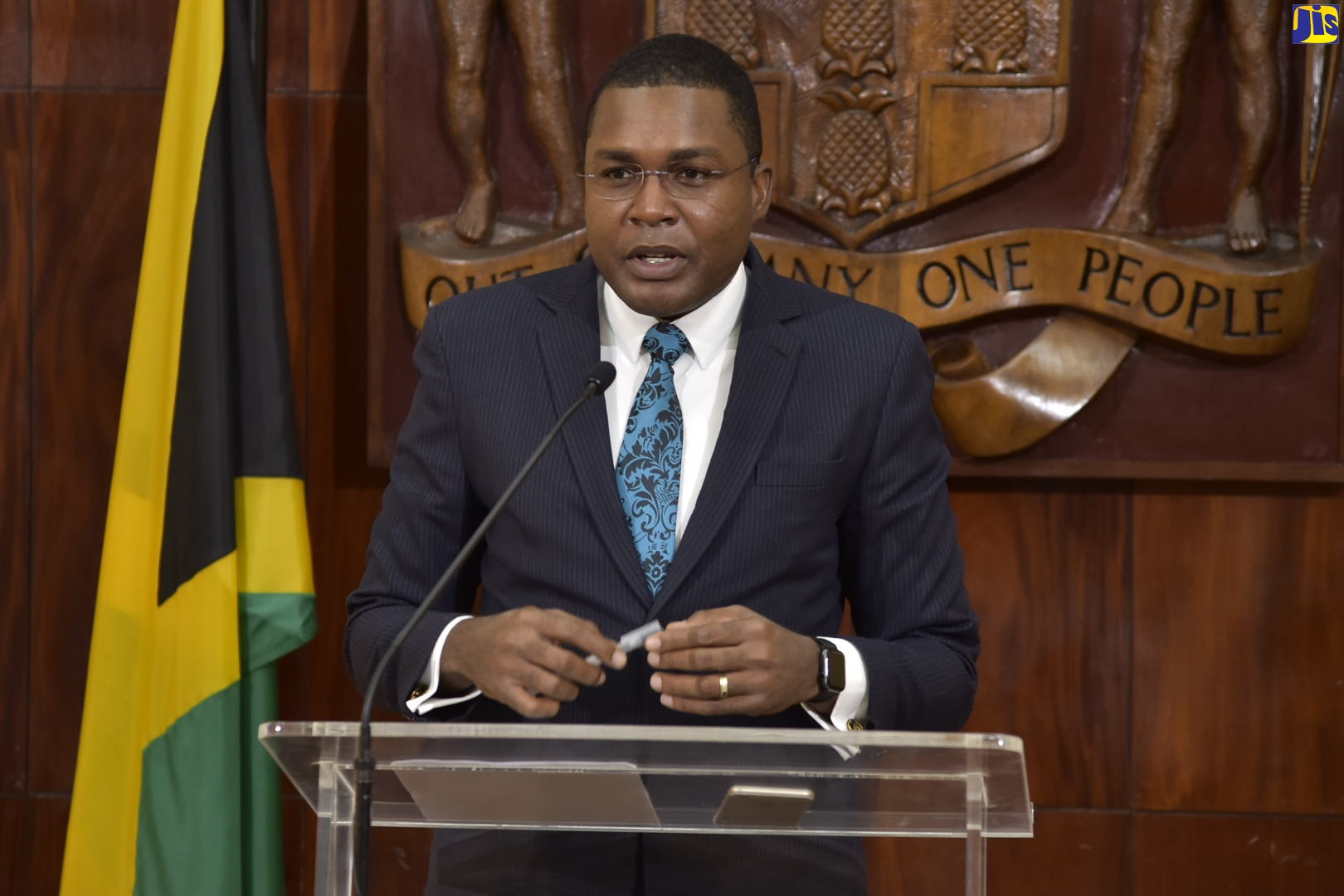Bus Donated to Child Protection and Family Services Agency
By: , April 18, 2021The Key Point:
The Facts
- He indicated that the vehicle will also alleviate some of the burdens on the sole functioning unit that has been serving the CPFSA’s four regions within recent years.
- The CPFSA, which has regulatory responsibility for 52 childcare facilities islandwide, currently has two other units, contributed by UNICEF and USAID, one of which is operational.
The Full Story
Mental health service delivery by the Child Protection and Family Services Agency (CPFSA) is poised to be significantly bolstered with the acquisition of a retrofitted 35-seater bus valued at $14.9 million.
The vehicle, which was purchased by the Transformation Implementation Unit in the Ministry of Finance and the Public Service and modified by Toyota Jamaica, is equipped with two counselling areas, Wi-Fi service, air conditioning, a refrigerator, sink and cabinets.
Its acquisition will assist in bolstering the CPFSA Mental Health Unit’s capacity to respond to the needs of children traumatised by acts of violence, who are in State care, by providing psychological screening and intervention.
The vehicle’s addition to the Mobile Mental Health Unit otherwise called the Smiles Mobile, and the provision of a US$3,957 multipurpose printer falls under the agency’s ICT Expansion Project.
This engagement is being funded by the Inter-American Development Bank and implemented by the Transformation Implementation Unit (TIU) within the Ministry of Finance and the Public Service.
Addressing the handover ceremony at Toyota Jamaica’s Old Hope Road offices in Kingston on Friday (April 16), Minister of State in the Ministry of Education, Youth and Information, Hon. Robert Morgan said the acquisition of the vehicle and equipment will go a far way in assisting the CPFSA to provide essential services to the most vulnerable.
He indicated that the vehicle will also alleviate some of the burdens on the sole functioning unit that has been serving the CPFSA’s four regions within recent years.
“It will redound to an increase in the ability of the mobile mental health services unit in addressing some of the challenges which exist within the childcare ecosystem,” he further stated.
Mr. Morgan advised that the Government has sought to initiate a slate of legislative changes while simultaneously looking to improve the infrastructural and institutional framework of Jamaica’s childcare protection system.
Meanwhile, TIU Executive Director, Maria Thompson Walters, said mental health support is fundamental in supporting children through rehabilitation and improving their emotional well-being.
“We at the TIU hope that this unit will assist the CPFSA in meeting the demands for mental health support and make it easier to service all four regions of the island, as the agency serves one of the nation’s most vulnerable and most important group – our children,” she said.
Mrs. Thompson Walters informed that the TIU has been supporting the CPFSA under the Public Sector Transformation Programme to modernise its operations through better use of information and communications technology.
Chief Executive Officer of CPFSA, Rosalee Gage Grey, welcomed the provisions, noting that they will assist in ensuring the children receive adequate and urgent treatment, particularly those experiencing severe trauma.
“During the pandemic, our children have been severely affected through their loss of contact to their normal social services through schools, churches… and most of them are homebound. Therefore, having this psychosocial intervention and mobile unit that can go to them [will] be critical in our operations,” she said.
Mrs. Gage Grey also commended the agency’s mobile mental health team for its role in reaching the children.
The CPFSA, which has regulatory responsibility for 52 childcare facilities islandwide, currently has two other units, contributed by UNICEF and USAID, one of which is operational.
As of December 2021, there are more than 4,600 children in the child protection system.
They include youngsters living in children’s homes and places of safety and facilitated in foster care and under supervision orders.
Additionally, there are other youngsters who are being prepared for family reintegration.


